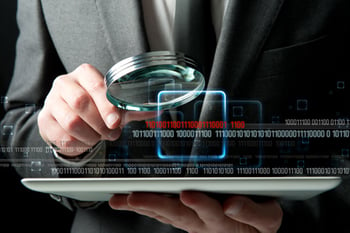Planning on traveling? No doubt you'll have your cell phone or another portable device with you and you'll need to re-charge it at some point. If your battery is running low, be aware that juicing up your electronic device at those free USB port charging stations, such as ones found in airports and hotel lobbies, might have unfortunate consequences. You could become a victim of "juice jacking" - yet another cyber-theft tactic.
What is juice jacking?
Juice jacking is a cyber-attack method that is gaining popularity among cybercriminals. This form of attack occurs when unsuspecting victims plug their smartphones or other electronic devices into charging stations in public places. Cybercriminals have been known to hack into these charging stations, causing them to inject malware into the victim's device. In some cases, criminals may have intentionally left cables plugged in at charging stations. There have even been reports of infected cables being given away as promotional gifts. Once infected, your device is now compromised and the attacker can access sensitive information such as credit card numbers, passwords, and personal data.
"Juice jacking is basically a portable charger or a charger out there in the public that's been designed to look real," says Jim Stickley, a cybersecurity expert. “It will actually charge your phone, but it's also either installing malware on your phone or stealing data off of your phone or other mobile device."
Most people don’t think of a phone charging kiosk as a potential danger zone. Do you hesitate before connecting your phone to this unknown device that could be configured to read most of the data on your phone, and perhaps even upload malware? The answer, for most people, is probably not.
THE RISKS OF juice jacking
Juice jacking can result in the theft of sensitive information, including credit card numbers, passwords, and personal data. Once an attacker has access to this information, they can use it for a variety of purposes, including identity theft, financial fraud, and other malicious activities. In addition to stealing personal information, juice jacking can also result in the installation of malware on the victim's device. This malware can cause the device to malfunction, slow down, or crash, rendering it unusable.
how to protect yourself from juice jacking
Fortunately, there are several ways to protect yourself from juice jacking. Here are a few:
- Bring your own charger: One of the best ways to protect yourself is to bring your own charger. By using your own charger, you eliminate the need to use a public charging station, reducing your risk of being hacked.
- Use a power-only USB cable: If you must use a public charging station, use a power-only USB cable. A power-only cable is designed to charge your device but does not transfer data, making it more difficult for attackers to install malware on your device.
- Use a portable power bank: Another way to avoid using public charging stations is to use a portable power bank. These devices allow you to charge your device on the go without the need for a charging station.
- Use a data blocker: If you must use a public charging station and don't have access to a power-only USB cable, consider using a data blocker. A data blocker is a small device that sits between your device and the charging station, preventing the transfer of data and reducing your risk of being hacked.
- Avoid public charging stations: Finally, if possible, avoid public charging stations altogether. Instead, look for secure charging options, such as charging stations in known secure areas.
RECAP
Juice jacking is a real and growing threat to the security of personal data. Cybercriminals are constantly finding new ways to compromise public charging stations and steal sensitive information from unsuspecting victims. However, there are several ways to protect yourself from juice jacking, you just need to be prepared ahead of time. By taking these precautions, you can significantly reduce your risk of falling victim to a juice jacking attack.
Stay safe, and always be cautious when plugging in your devices in public places.
What do you think? Has this info been helpful? Are you currently traveling and using public charging stations? Will you think twice about using them now? Please let us know if we can help or answer any questions you may have. Please let us know in the Comments box below or shoot me an email if you’d like to discuss this in more detail.
/fpa-logo-tagline.gif)







